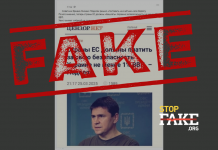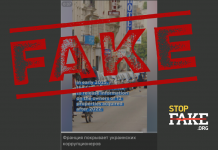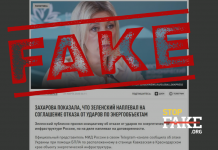Disinformation and propaganda operations are not spread in the random and uncoordinated manner. They always have a precise target and adequate methods, effective in given society. A good example are Russian propaganda actions aimed at individual states in the context of international politics.
In the case of Poland, the negative light is shed primarily on the US and Germany. Negative information coming from France or widely understood Western Europe are spread. It is not difficult to imagine a situation in which the propagandists monitoring informational environment, primarily virtual, select in negative manner the information coming from the West. This method causes creation of information bubbles in the area of international affairs, because the given website or group in social media (or the network of related, but virtually independent accounts in social media) promote and discuss selectively chosen pieces of information from the West. Often, for the audience the barrier in verifying such content is the language, therefore they willingly reach for descriptions or misleading translations from Western press. It creates so called negative echoes from the West:
“Therefore, there is a generally negative image of the Western world being built, as depraved, destabilized, occupied with its own particular interests”, noticed Kamil Basaj from Info Ops Polska Foundation.
What is the purpose of such actions?
“It is done in order to diminish basis for development of the feeling of relation between the West and Poland in the long-term, strategical perspective”, says Basaj.
As the expert of Info Ops Polska Foundation noticed, those are special services who are responsible for limiting the effect of manipulation. They analyze the information stream, provide authorities with verified and analyzed information of the wider spectrum than what we can obtain in the civil environment. Unfortunately, this manipulated message has some element of influence on the society, because it can shape the manner of seeing those relations for example by neighboring state:
“Good example here is the question of Polish-Ukrainian relations and the ability of Russians to realize other threats than purely informational, such as terrorist operations”, says Kamil Basaj. “Those are the issues related to provoking and inspiring protests or even more dangerous, such as the attack on the consulate in Lutsk or attempts to set coaches on fire. It was aimed to create the impression that Poland and Ukraine are in conflict. It is about the influence on the manner of seeing, for example, the Polish minister of foreign affairs on Ukraine.”
What is the purpose of all of this? According to Basaj, it is a part of multi-vector strategy aimed to obtain few effects:
“If Ukraine is negatively imaged in the eyes of public, people who are engaged in help for this state, for example in the context of Russian aggression, will be also negatively seen and will not be understood. It is a part of the reflected influence. It is about a situation when the person or group that is meant to be depreciated, is not directly influenced, but the influence is made on the context of information in which they function. For example, if after few years of disinformation operation, hypothetically, the trust or sympathy for the guarantee of security which is NATO lowers, political groups involved in building those relation will be also seen in a more negative way of at least not fully understood. Therefore, informational attack in one direction affects also the way we see, in long-term perspective, organizations, institutions, political parties which support that direction. The perfect example here are Polish-American relations”, summarizes Basaj.
WP





